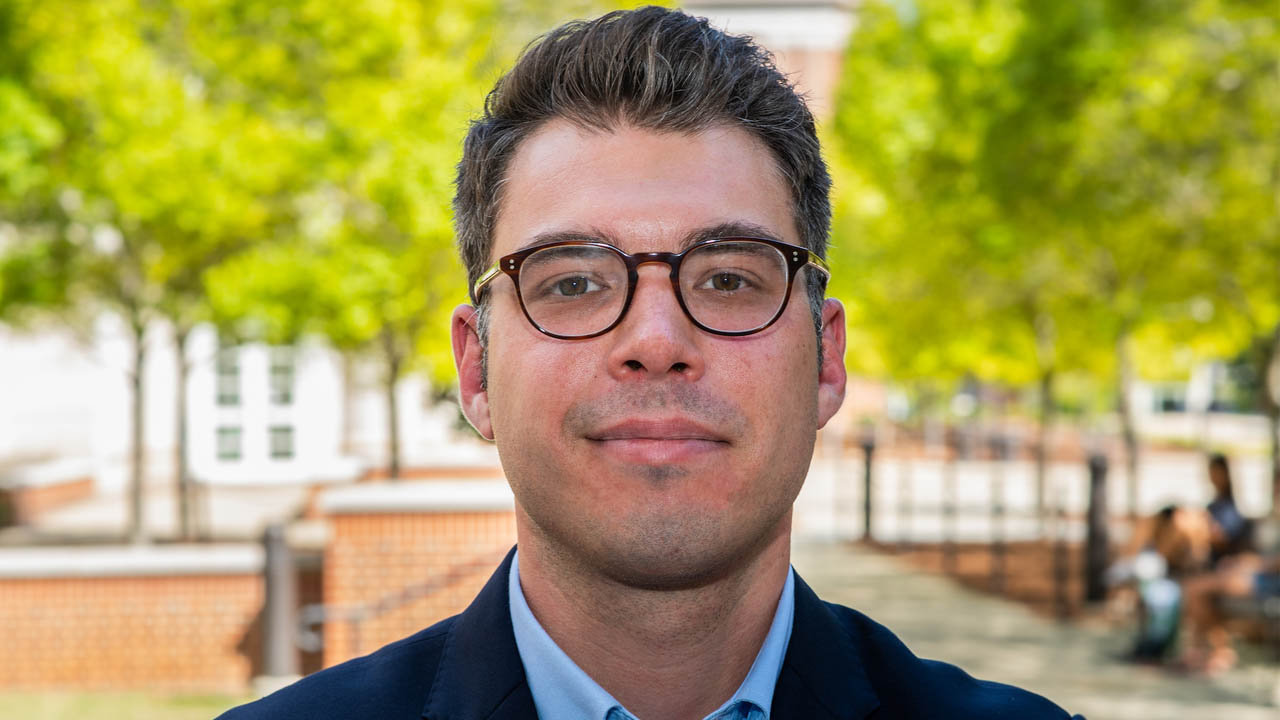Mechanical Engineering professor earns NSF CAREER Award for low-temperature plasma research
Published: Feb 23, 2023 9:00 AM
By Jeremy Henderson
Mitigating the environmental impact of meeting the world's rapidly increasing transportation energy demands is a problem. The National Science Foundation (NSF) thinks Nick Tsolas may have a solution.
The assistant professor of mechanical engineering recently received a $518,000 NSF CAREER Award to investigate low-temperature plasma-assisted combustion of oxygenated fuels as a potential alternative to achieving a cleaner and sustainable future for the transportation sector.
"The overall objective of this project is to examine how we can leverage unique chemical and physical properties of low-temperature plasmas (LTP) to improve the energy extraction and efficiency of renewable fuels with potentially less environmental harm," Tsolas said. "I believe we are at a very critical junction between trying to curb our climate change issues while trying to figure out how to satisfy our ever-increasing energy needs. This debate can often be marred by political, economic and social arguments, and rightfully so, but more importantly, it is absolutely imperative that we make decisions based on factual, evidence-based science."
Since arriving at Auburn in 2017, Tsolas has focused on developing the facilities and diagnostic tools necessary for unique studies into how LTPs can perturb the reactivity of combustion processes. Much of that work stemmed from a nearly $700,000 NSF grant Tsolas received in 2019 under the Major Research Instrumentation program to develop a unique, experimental facility to demonstrate how non-equilibrium plasmas can be used to address some of the toughest combustion challenges.
"Experimentally, we have developed two unique experiments to study various aspects of this phenomena, including a plasma-coupled flow reactor to study fundamental plasma-chemical interactions, and a plasma-coupled rapid compression machine, specifically to study ignition and plasma-flame interactions at conditions that mimic advanced compression ignition (ACI) engines," Tsolas said.
Despite their promise as a more efficient and environmentally sound improvement upon conventional internal combustion engines, ACI engines require better strategies for incorporating renewable biofuels under dilute-burn conditions to demonstrate their efficacy as a viable solution for sustainable mobility. In the past, LTP-based technologies have shown considerable promise as a method to improve combustion-based applications with conventional fuels, “however, there remains a fundamental knowledge gap on the interaction between plasma-chemical effects and the basic combustion process to optimize and design new systems accordingly with LTP and biofuels," Tsolas said.
"With the experimental data at our disposal, further fundamental insight will be elucidated by custom-built numerical models capable of modeling the interacting physics between combustion and LTP at different time-and-length scales," Tsolas said. "A first for me in this project will be to uniquely leverage molecular dynamic techniques to predict electron-impact interactions in LTP at local atomistic scales.”
Although the application of the project was meant to address energy issues in the transportation sector, Tsolas expects that fundamental outcomes from his research can also be adopted to support other LTP-based applications, such as micro-propulsion for CubeSats, pollution remediation and valorizing carbon dioxide to manufacture value-added fuels and electro-fuels.
"I am extremely grateful to my peers in the field and the program manager for reviewing the proposal favorably and recognizing its potential," Tsolas said. "Receiving this award is immensely humbling."
Media Contact: , jdh0123@auburn.edu, 3343190721


